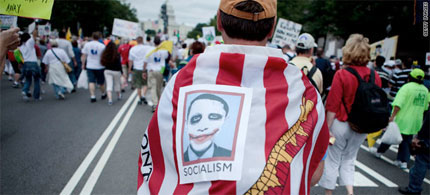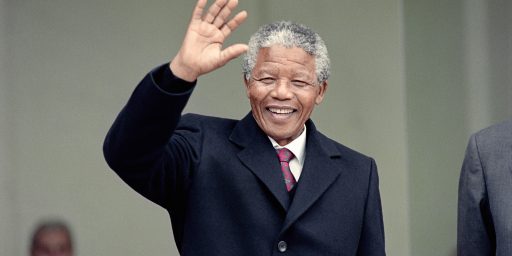More Africans Enter U.S. Than in Days of Slavery
More Africans Enter U.S. Than in Days of Slavery (NYT rss)
For the first time, more blacks are coming to the United States from Africa than during the slave trade. Since 1990, according to immigration figures, more have arrived voluntarily than the total who disembarked in chains before the United States outlawed international slave trafficking in 1807. More have been coming here annually – about 50,000 legal immigrants – than in any of the peak years of the middle passage across the Atlantic, and more have migrated here from Africa since 1990 than in nearly the entire preceding two centuries.
[…]
The movement is still a trickle compared with the number of newcomers from Latin America and Asia, but it is already redefining what it means to be African-American. The steady decline in the percentage of African-Americans with ancestors who suffered directly through the middle passage and Jim Crow is also shaping the debate over affirmative action, diversity programs and other initiatives intended to redress the legacy of slavery.
In Africa, the flow is contributing to a brain drain. But at the same time, African-born residents of the United States are sharing their relative prosperity here by sending more than $1 billion annually back to their families and friends. “Basically, people are coming to reclaim the wealth that’s been taken from their countries,” said Howard Dodson, director of the Schomburg Center for Research in Black Culture, in Harlem, which has just inaugurated an exhibition, Web site and book, titled “In Motion,” to commemorate the African diaspora.
The influx has other potential implications, from recalibrating the largely monolithic way white America views blacks to raising concerns that American-born blacks will again be left behind.
“Historically, every immigrant group has jumped over American-born blacks,” said Eric Foner, the Columbia University historian. “The final irony would be if African immigrants did, too.”The flow from Africa began in the 1970’s, mostly with refugees from Ethiopia and Somalia, and escalated in the 1990’s, when the number of black residents of the United States born in sub-Saharan Africa nearly tripled. Combined with the much larger flow of Caribbean blacks, the recent arrivals from Africa accounted for about 25 percent of black population growth in the United States over all during the decade. Nationally, the proportion of blacks who are foreign born rose to about 7.3 percent from 4.9 percent in the 1990’s. In New York City, about 1 in 3 blacks are foreign born.
Facinating.





